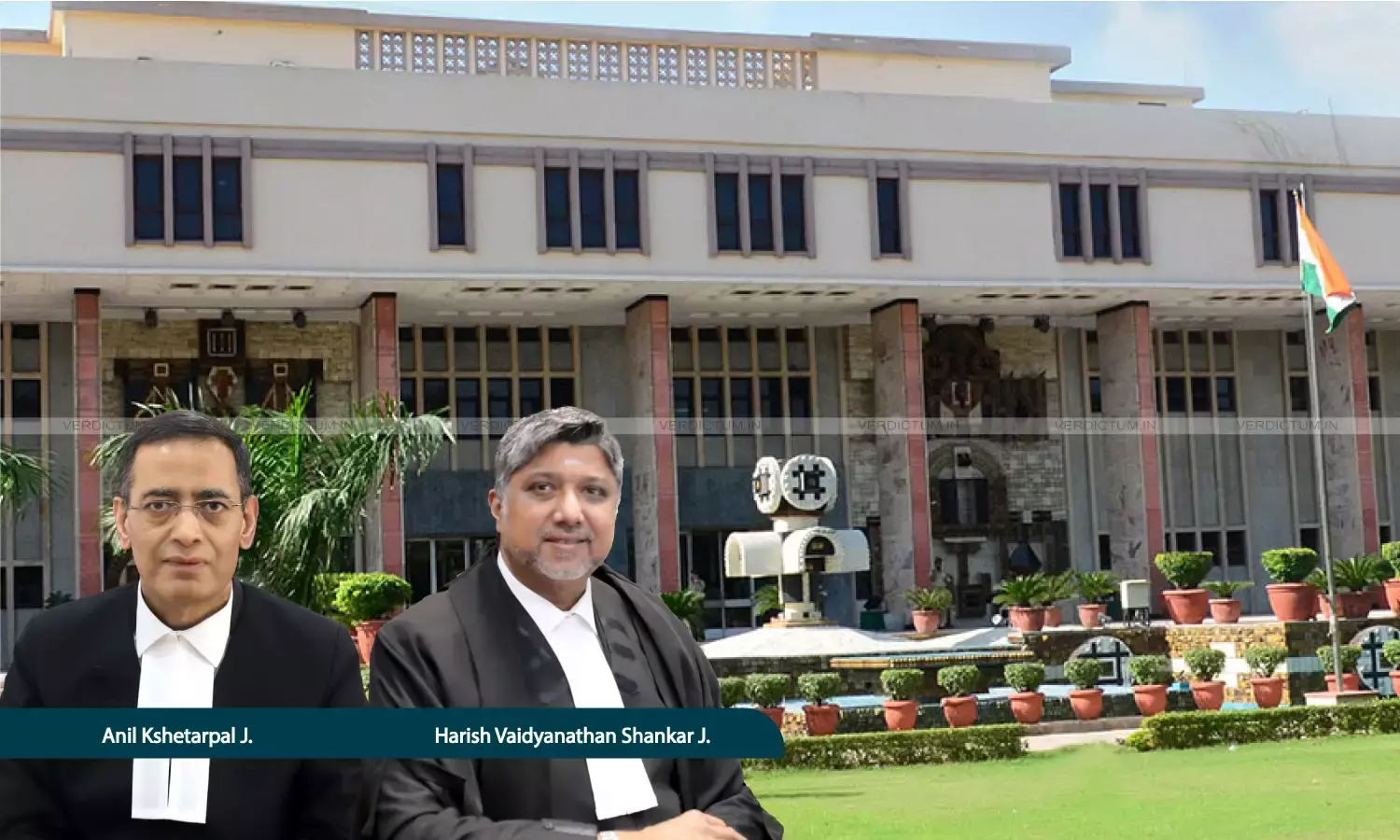Guarantors Can’t Invoke Company Court’s Jurisdiction To Shield Themselves From Recovery Proceedings: Delhi High Court
The Delhi High Court was considering an Appeal filed under Section 483 of the Companies Act, 1956, assailing the correctness of the order passed by the Single Judge.

Justice Anil Kshetarpal, Justice Harish Vaidyanathan Shankar, Delhi High Court
While upholding an order wherein it was observed that the proceedings against guarantors are independent of the winding up proceedings, the Delhi High Court has held that guarantors can not invoke the jurisdiction of the Company Court to shield themselves from recovery proceedings after the winding up of the company has been completed.
The High Court was considering an Appeal filed under Section 483 of the Companies Act, 1956, assailing the correctness of the order passed by the Single Judge whereby the application filed by the Appellants seeking to restrain Respondent/IDBI Bank from proceeding under its Notice demanding payment of Rs 252.53 crore came to be dismissed.
The Division Bench of Justice Anil Kshetarpal and Justice Harish Vaidyanathan Shankar asserted, “The liability of guarantors is independent of the Company’s liquidation. This principle is well-established in law, as held by the Supreme Court in Lalit Kumar Jain (supra) which states that discharge of the principal borrower does not discharge the liability of personal guarantors. Accordingly, guarantors cannot invoke the jurisdiction of the Company Court to shield themselves from recovery proceedings after the winding up of the company has been completed.”
Advocate Alok Kumar Aggarwal represented the Appellant, while Senior Standing Counsel Ruchi Sindhwani represented the Respondent.
Factual Background
The Appeal before the High Court was filed by the personal guarantors of the Respondent Company, which was ordered to be wound up. Following the order of winding up, a Provisional Liquidator and subsequently an Official Liquidator (OL) were appointed. The Company’s assets, comprising six units, were sold under the supervision of the OL and all sale proceeds were distributed in accordance with the law. It was the appellants’ case that they had agreed to cooperate with the banks in the sale of units under an alleged One Time Settlement [OTS] in 2023 and they should not be held liable until the OTS proceeds were paid. They further contended that the OL delayed disbursement of funds, and this delay caused the banks to retreat from the OTS, thereby prejudicing the Appellants.
It was the respondents’ case that the liability of the guarantors was independent of the Company’s liquidation and the proceedings against them could be pursued in appropriate forums. The Single Judge, vide the Impugned Order, dismissed the Appellants’ Company Application. It noted that the application was an independent cause of action between the guarantors and the Bank, and therefore, no directions could be issued by the Company Court in favour of the guarantors. Aggrieved thereby, the appellants approached the High Court.
Reasoning
The Bench, at the outset, explained, “The purpose of the Company Court under the Companies Act, 1956, is limited and well-defined. Its jurisdiction is to supervise the winding up of a company, ensure the realisation of its assets, adjudicate claims of creditors, and oversee the distribution of proceeds. The Company Court is not a forum for shielding guarantors from recovery proceedings once the liquidation process has attained finality.”
The Bench noted that the Appellants, who are personal guarantors of the Company, sought to restrain IDBI Bank from recovering a sum of Rs 252.53 crore under a purported OTS in 2023. The material indicated that the purported OTS was never implemented, and no payments were made pursuant thereto within the stipulated time. “The assertion that the delay in disbursement by the OL caused prejudice to the Appellants is not a ground that falls within the jurisdiction of the Company Court”, it held.
As per the Bench, the Appellant’s reliance on the alleged OTS or higher valuation of properties sold in 2022 did not alter the settled fact that the winding up proceedings had concluded, the Bank’s claims had been adjudicated, and proceeds distributed in accordance with Court orders.“The Appellants are free to pursue remedies available to them in other fora, such as the Debts Recovery Tribunal or Civil Courts, to challenge any action taken by the Bank against them personally. However, this Court cannot exercise the Company Court’s jurisdiction to protect guarantors once the winding up process has been completed”, the order read.
Finding no merit in the Appellant’s contention that the Company Court should intervene to restrain the Bank from recovery proceedings, the Bench dismissed the appeal and held, “The Impugned Order correctly observes that proceedings against guarantors are independent of the winding up proceedings.”
Cause Title: P C Jhalani & Ors v. Jhalani Tools (India) Ltd (Neutral Citation: 2025:DHC:8834-DB)
Appearance
Appellant: Advocates Alok Kumar Aggarwal, Anushruti, Anushka Sharma, Snigdha Rajpal, Aanavi O
Respondent: Sr. Standing Counsel Ruchi Sindhwani, Advocates Megha Bharara, Yasharth

